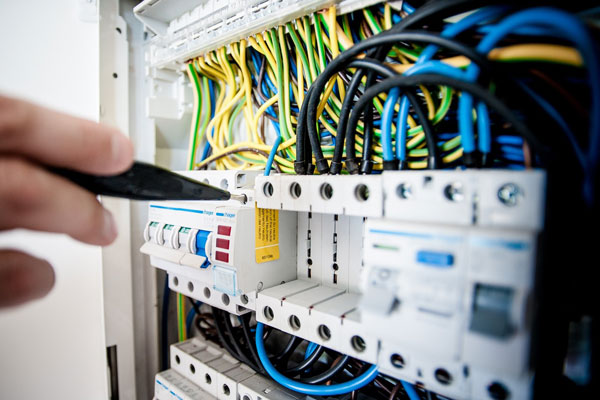In our ever-evolving world, technology has woven its way into every aspect of our lives. From smartphones to smart homes, it seems that the future is all about connectivity and automation. Now, this technological revolution is making its way into the commercial sector, and electricians are at the forefront of this transformation. In this blog, we will explore the crucial role of an electrician in setting up a smart commercial building.
The Smart Commercial Building Revolution
Smart commercial buildings are the new norm. They are designed to enhance efficiency, reduce energy consumption, and provide a safer and more comfortable environment for occupants. These buildings are equipped with various systems and devices that communicate with each other to optimize operations and improve overall functionality. This includes lighting, HVAC (Heating, Ventilation, and Air Conditioning), security, and more.
So, where does the electrician fit into this equation? Let’s dive deeper.
- Electrical System Design
The foundation of any smart commercial building is its electrical system. Electricians are responsible for designing and installing the electrical infrastructure that will power the building’s smart features. This includes ensuring that there are enough outlets and circuits to accommodate the various devices and systems that will be integrated.
Furthermore, they must plan for future expansion and increased power demand as technology evolves. Electricians need to have a deep understanding of electrical codes and regulations to ensure that the system is safe and compliant.
- Wiring for Smart Systems
Smart commercial buildings rely heavily on low-voltage wiring for their automation systems. This is where electricians come in. They are responsible for installing the wiring for smart lighting, climate control, security, and other automated systems. This intricate work requires precision and knowledge of the specific requirements for each system.
For example, lighting control systems often use specialized wiring to communicate with sensors and control panels. Electricians must ensure that these systems are correctly wired and configured to work seamlessly.
- Integration of Smart Devices
Once the wiring is in place, electricians play a crucial role in integrating and configuring smart devices. This includes installing and programming smart thermostats, lighting control systems, security cameras, and access control systems. Electricians work closely with other professionals, such as IT specialists and automation experts, to ensure that all systems are interconnected and functioning correctly.
- Troubleshooting and Maintenance
The job of an electrician doesn’t end when the smart commercial building is up and running. They are also responsible for troubleshooting and maintaining the various electrical and automation systems. In the event of a malfunction or system failure, electricians are the first responders, diagnosing the issue and implementing a solution.
Regular maintenance is equally essential to keep all smart systems running smoothly. Electricians perform routine inspections and repairs to prevent downtime and ensure the building’s continued efficiency and safety.
- Safety and Compliance
In the world of smart commercial buildings, safety is paramount. Electricians are trained to follow strict safety protocols when working with electrical systems. They ensure that all wiring and installations meet the necessary safety standards and codes. Compliance with regulations not only ensures the well-being of occupants but also protects the building from potential legal and insurance issues.
Conclusion
The role of an electrician in Oakland in setting up a smart commercial building is undeniably significant. They are the architects behind the scenes, responsible for designing, installing, and maintaining the electrical infrastructure that powers the building’s smart features. Without skilled electricians, the vision of a connected, efficient, and safe commercial building would remain a distant dream.
As technology continues to advance, the demand for electricians with expertise in smart building systems is on the rise. Their ability to navigate the intricate world of automation and ensure that everything works seamlessly is invaluable. So, the next time you step into a smart commercial building, remember the electricians who made it all possible, quietly working their magic to bring the future into the present.
